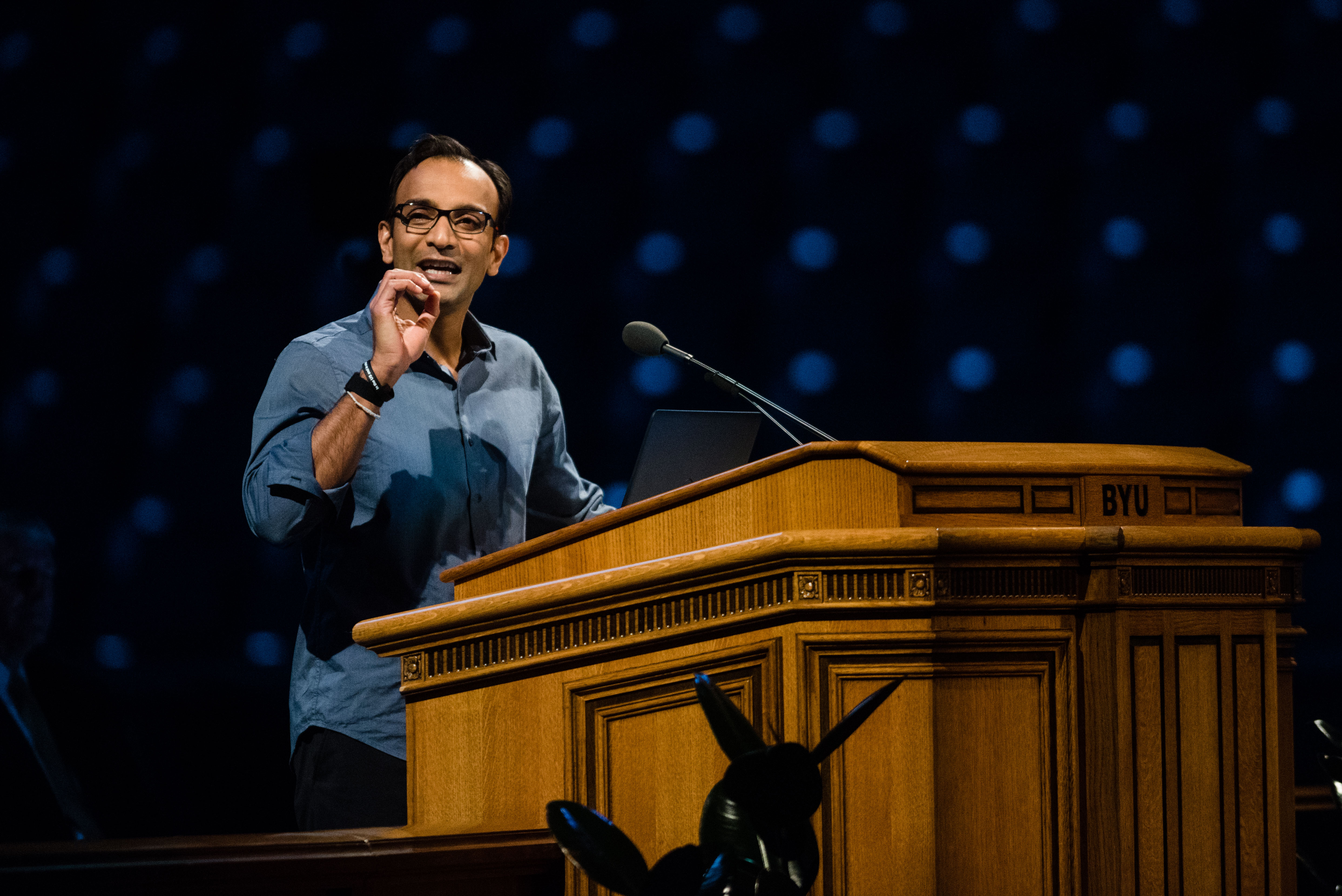
Former U.S. Chief Data Scientist Dhanurjay “DJ” Patil spoke on the powerful impact of data science in solving today’s problems during his Feb. 13 forum address.
He began by comparing the technology society has today as opposed to 10 years ago.
“Your phone didn’t take pictures, video was a foreign concept…buying shoes on the internet was weird, carrying stacks of maps when you got to a new place — that was normal behavior,” Patil said.
Today, people expect GPS mapping to get them from point A to point B on the fastest route possible. Shipping now is not just two-day, but often has a one-day turnaround, according to Patil.
“We have truly seen a revolution of technology take place in our lifetime,” Patil said. “Not just in this lifetime of a long arc of a single human — in literally just a decade, we have seen this transformation that is complete.”
Patil said the the foundation of this revolution is data in relation to the internet of things — the network of physical devices and the connectivity which enables them to exchange data, genomic and precision medicine, data science machine learning and artificial intelligence, and autonomous vehicles.
The mission statment of the U.S. Chief Data Scientist is “to responsibly unleash the power of data to benefit all Americans.” Patil emphasized the responsible use of data, and said this revolution is not yet happening for all Americans — but it’s happening for some.
Patil gave the example of jails across the U.S. He said 11.4 million Americans will cycle through about 3,100 jails this year. On average, they will stay for 23 days and about 95 percent of them will not go on to prison. This is an expensive problem, and according to Patil, data can be used to help solve it.
The White House Data-Driven Justice Initiative focused on finding a solution. They figured out who the people in these jails are and then share the information with police departments.
Patil said sharing spreadsheets is one of the solutions implemented by Miami-Dade, Florida. It cost $1.5 million to implement, but they saved $10 million in the first year.
“They closed a full jail,” Patil said. “A couple of years later they closed a second jail. Crime rates went down, officer-involved assaults went way down — the whole system worked.”
Sharing spreadsheets in a secure way to protect privacy is key to implementing this practice, according to Patil.
“Using data to not only provide transparency, accountability, but also for people to share it to figure out how to improve systems that take care of the entire society that we’re engaged with,” Patil said. “We fundamentally have to find ways to make this technology work for us and not against us.”
Patil gave multiple examples of people working hard to find data-driven solutions to serious problems such as disease, cancer and suicide risk. He said often the problem holding back a solution is a database. There are hundreds of databases, and the answer typically already exists in a database, but people haven’t figured out how to look for it yet.
“When we empower people with data, we find they do amazing things,” Patil said.
He provided three core principles to take away from the forum address: people are always greater than data, data is a force multiplier and the time to engage is now.
To make this happen, Patil said to, “dream in years, plan in months, evaluate in weeks and ship (act) daily.”
“Take ideas that others might have and combine them,” Patil said. “Make it a ‘we’ problem, not an ‘I’ thing.”
He encouraged BYU students to always ask what is required to cut the timeline in half and what’s required to double the impact. When these questions are asked, radical transformations in ideas can take place.
“The fundamental point at the end of the day is that no matter how much technology and data we use, it’s about people first,” Patil said. “It’s about our population, it’s about our citizens, it’s about us as a country coming together using all these things — but always at the end of the day, putting people first.”




